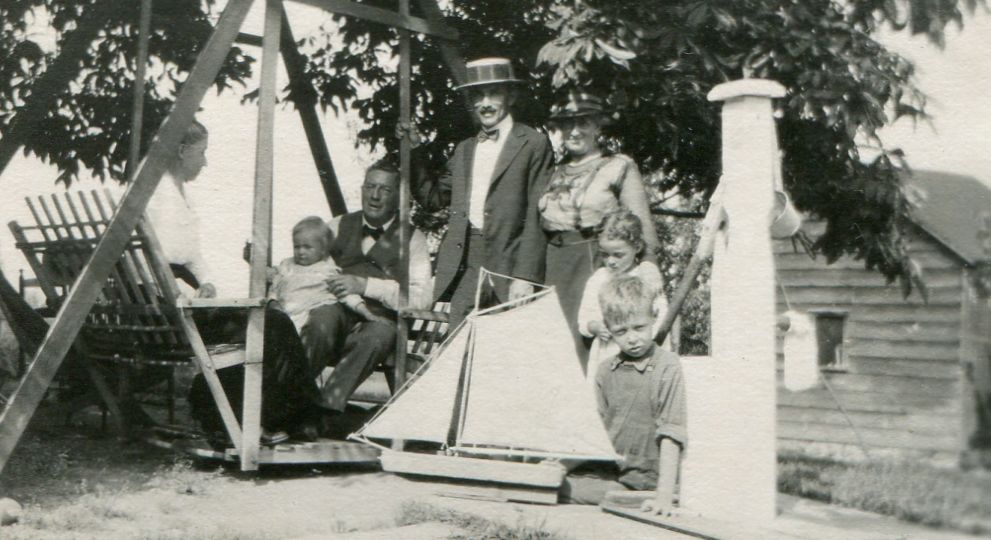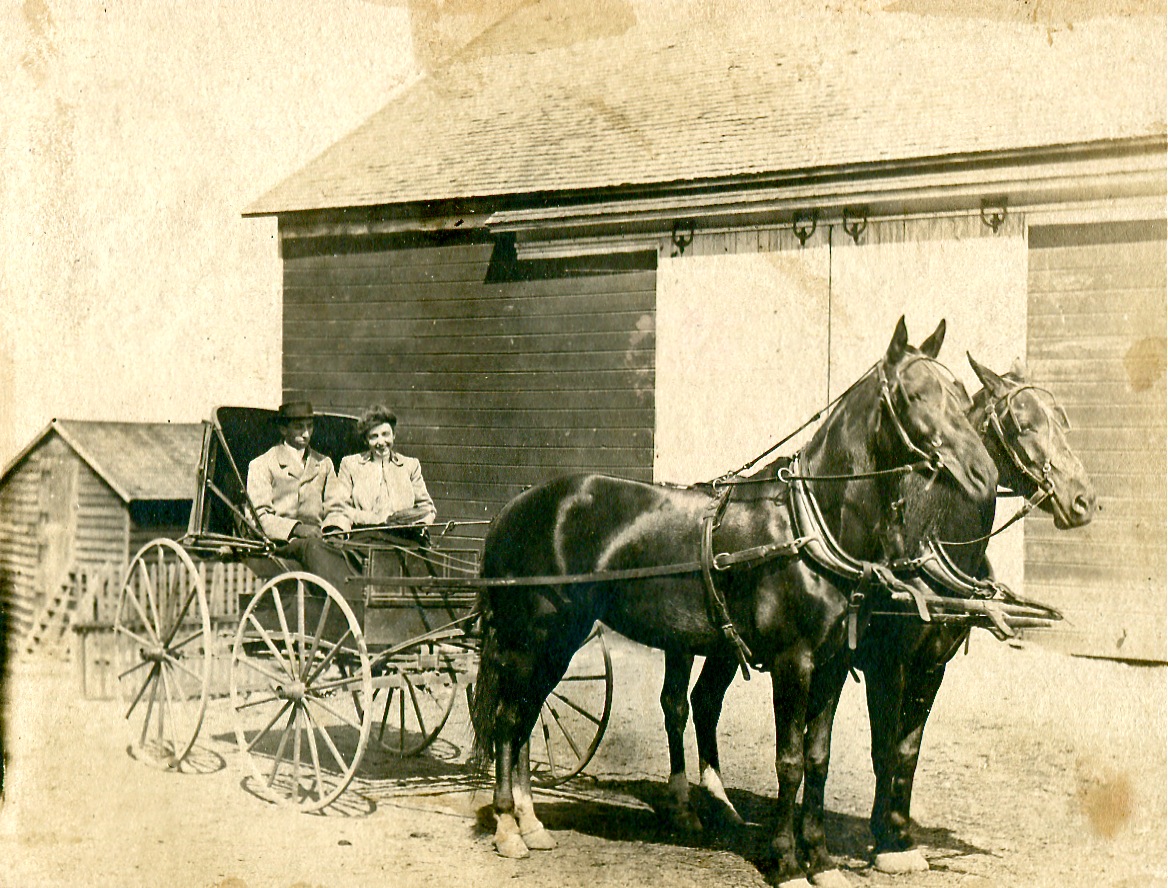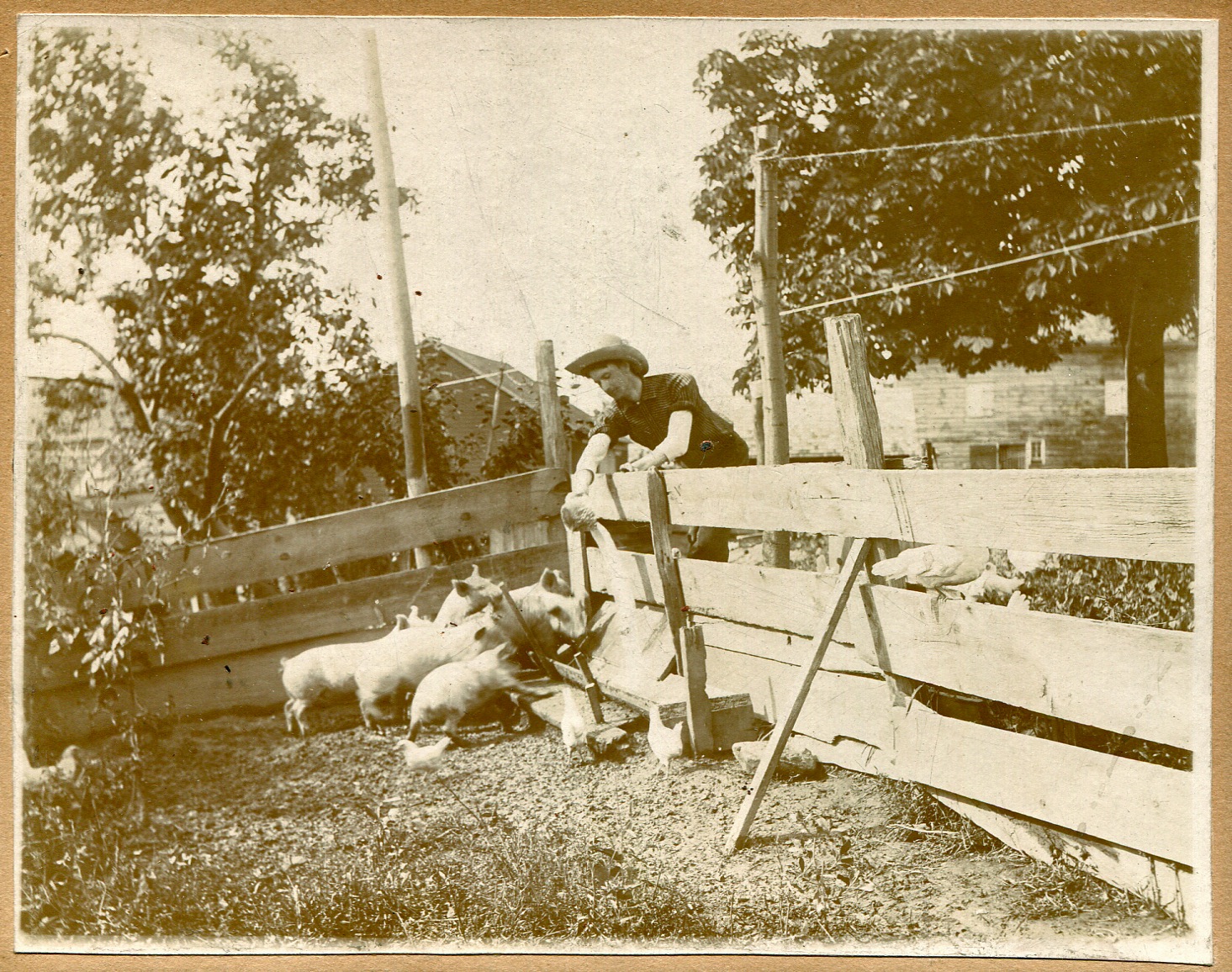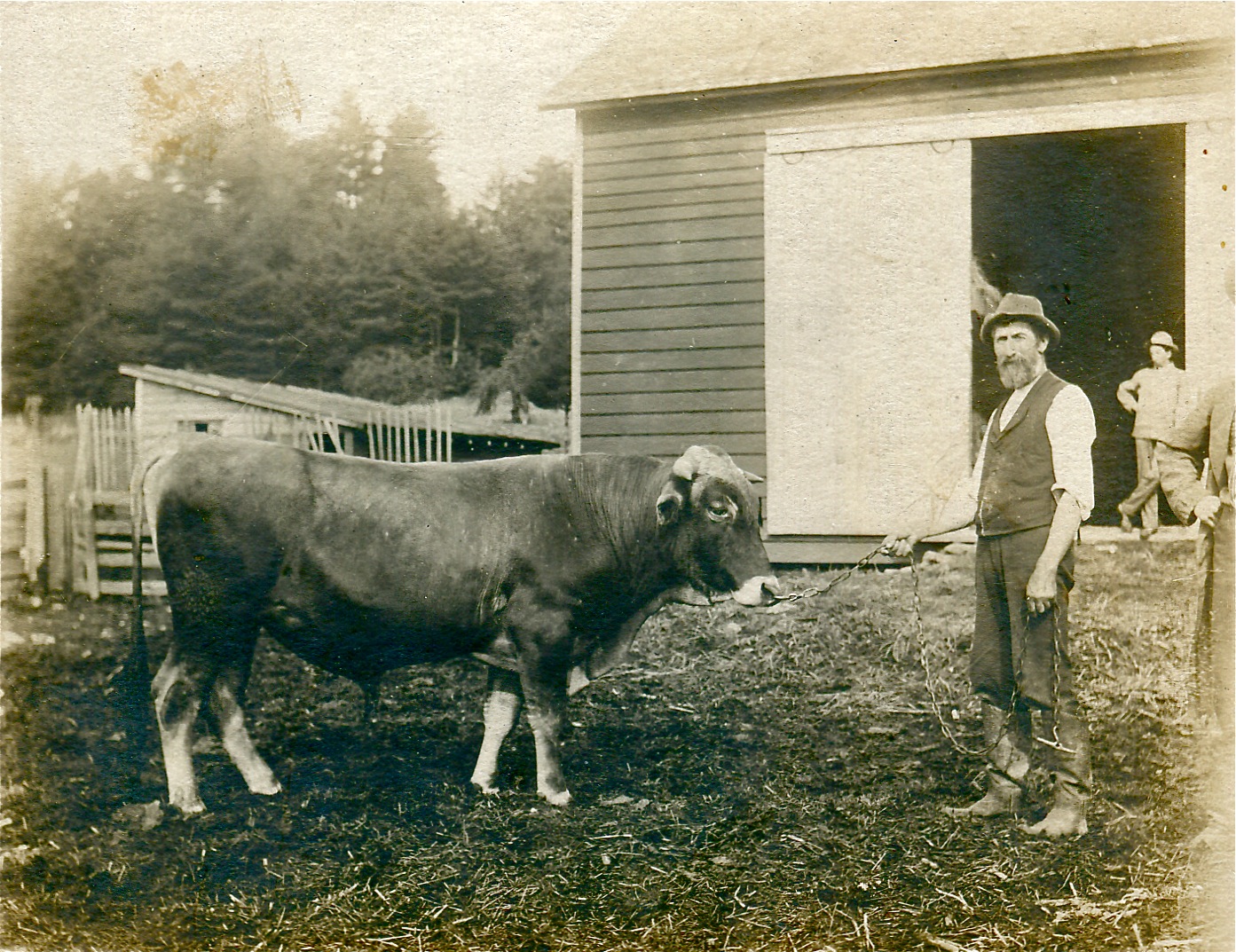Because I started from a gardening background, when I think of farming I think of vegetables. Creating small rills of soil that shelter the tiniest seeds is, to me, the most optimistic thing I can do. Especially in the northeast, when the ground never seems to warm up and a cold wind can blow through May. A carrot seed is about the size of this period. And within one season it can grow into an edible root a foot long — except in my rocky soil, where the carrots grow to four inches and then express their secret love of the baroque.
My farming knowledge is growing like carrots these days, as I look for reasons to visit farms and to talk with farmers. This spring I was blessed to meet Everett Rau, who’s been farming for nearly a century on a cold hillside farm in Altamont, New York. Ev will celebrate his 95th birthday in August and has lived and farmed his family land since 1919. He carries in his living history the story of American farming in the 20th century.
Everett Rau in his kitchen. June 2014.
On June 23, Ev and I had a conversation before an audience of 70 or so friends and residents in Altamont Village Hall. Ev talked about the ups and downs of a life in farming and how his family was able to survive the Depression by growing and preserving their own food and in WWII how they turned food rationing to their benefit by selling homemade sausage on the side to co-workers at GE. When I asked Ev why people turned their backs on farms after the war, he said that “People changed. Before the war, everyone helped each other. The work was hard but it was what you did.” After the war the culture became more materialistic and less trusting.
Somehow, we never got to Ev’s view of animals during the interview, which is funny because his diversified farm, at one point raised 3,000 turkeys. He also had 300 laying hens, pigs, and sheep. According to Ev, he and his wife, Peggy, love to watch sheep grazing, seeing them as almost biblical when they cross the dyke to get a drink in the pond.
“Raising animals pulls us into their lives in ways that we could never predict,” said Ev, remembering the time he acted as a midwife for a difficult birth. The ewe had birthed one lamb. Ev watched it dive out feet first as so many had before. But then he noticed her lie down and saw a little nose peeping out of the birth canal. With the feet facing backwards, the shoulders would have been huge. Ev grabbed some old bathroom towels and was able to get ahold of the lamb’s head and pull in time with the sheep’s contractions. He heard a crack and kept pulling, fearful that he’d injured the lamb, but trying to save the sheep. As the lamb emerged, Ev noticed that it wasn’t breathing. He severed the umbilical chord and cleared its mouth, then pushed gently on its ribcage — feeling that he was working with a greater power. Suddenly there was a gasp and a breath. The lamb got up and nursed and eventually grew to be a healthy sheep. “I knew that was the moment I worked with God,” finished Ev.
Ev and his grandson Tim in front of their antique Farmall tractor
Today Ev is working with his son and grandson to expand the offerings of Pleasant View Farm to include organic fruits and vegetables, pasture raised beef and antibiotic-free turkeys raised on non GMO feeds. The local foods movement has given him hope that his family can again make a living on the hillside farm that has been theirs since 1799.
My interview with Everett Rau is being incorporated into a documentary by the Village of Altamont Archives and Museum. The event was covered by the Guilderland Spotlight, and the Altamont Enterprise.








